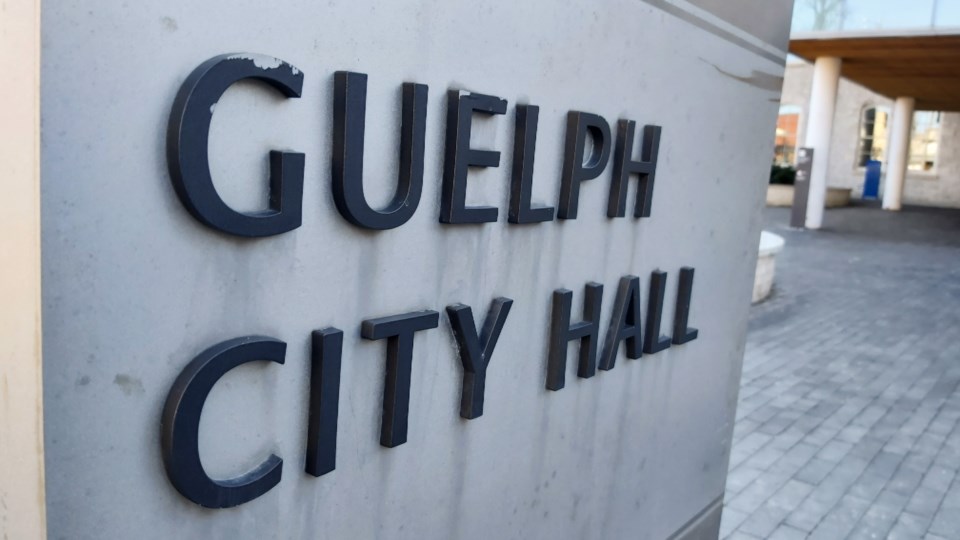Residents might soon know who’s influencing local politicians, as the city seeks to pass a lobbying registry bylaw.
In a report to be presented to city council's committee of the whole on July 3, city staff say the “establishment of a registry in Guelph will increase the accountability of elected officials and senior city staff.”
If approved, the bylaw and accompanying code of conduct would come into effect on Oct. 1, though it wouldn’t be enforced until Jan. 1 to give members of the public, lobbyists and public office holders time to become familiar with the bylaw before penalties are handed out for non-compliance.
The Oct. 1 implementation is to allow time for city staff to build the registry in-house rather than hiring an outside firm, which the report says would give the city greater control over its functionality and save tens of thousands of dollars.
Staff are requesting Suzanne Craig be appointed as the lobbyist registrar, acting as an independent officer, similar to the integrity commissioner.
Craig has worked as an integrity commissioner for more than 20 municipalities, and is currently the lobbyist registrar in Vaughan.
The total annual cost for the registrar position is estimated to be between $10,000 and $20,000.
The report states a lobbyist registry is “a useful tool for promoting transparency and trust in local government. It provides a public record of individuals engaged in lobbying, including who they represent, who they lobby, and the issues they advocate for.”
However, it notes a registry “does not prohibit, minimize or reduce the effectiveness of lobbying and it places no limits on the amount or type of lobbying that can take place.”
The lobbyist registry would not be limited to business interests, but only covers communications connected to a financial interest. This is to “remain agnostic regarding for-profit and not-for-profit organizations,” the report states.
To expand the definition to include those without financial interest, like provincial and federal lobbyist registries, would make it far more complicated and costly, the report states, making any communication with an office holder “that is not a routine constituency/community issue would qualify as lobbying.”
This could be something as simple as a resident wishing to speak to staff or an elected official about traffic calming or waste collection.
In the report, financial interest is defined as “a stake in a policy outcome that can reasonably be determined to have a monetary impact, whether a dollar value can be easily determined or not.”
For example, a not-for-profit or for-profit organization seeking funding for a community event, a business owner seeking a reduced permit cost, or a vendor encouraging the licensing of a piece of software outside the normal procurement process.
It does not count as lobbying if business owners or organizations communicate with elected officials about topics that don’t have direct financial impacts on them – for instance advocating for affordable housing or bike lanes.
Lobbyists will be required to act in keeping with the code of conduct, and the public could file complaints regarding non-compliance to the registrar.
In an earlier meeting, city council asked staff to include financial penalties along with lobbying bans in response to non-compliance, but staff are advising against it for now for fear of reducing the amount of lobbying that occurs.
Lobbying is a “necessary and productive part of the policy making process in a healthy democracy,” it says. “The purpose of the registry is to generate additional transparency and accountability, not to act as a punitive measure which disincentives open and frank dialogue between office holders and lobbyists.”
This could change, however, if there are too many repeat offenders.
If approved, the registry bylaw would be reviewed by city staff one year after implementation so tweaks can be made.
City staff first raised the question of a municipal lobbyist registry in 2019, and revisited the idea last summer after Guelph received strong mayor powers.
In September, council directed staff to investigate the prospect of creating a municipal lobbyist registry, in an effort to establish accountability and transparency when it comes to influence on elected officials and municipal staff.
Council unanimously approved the creation of the registry in April, directing city staff to draft a policy and bylaw to establish a municipal lobbyist registry, both of which will be presented to council July 3.
